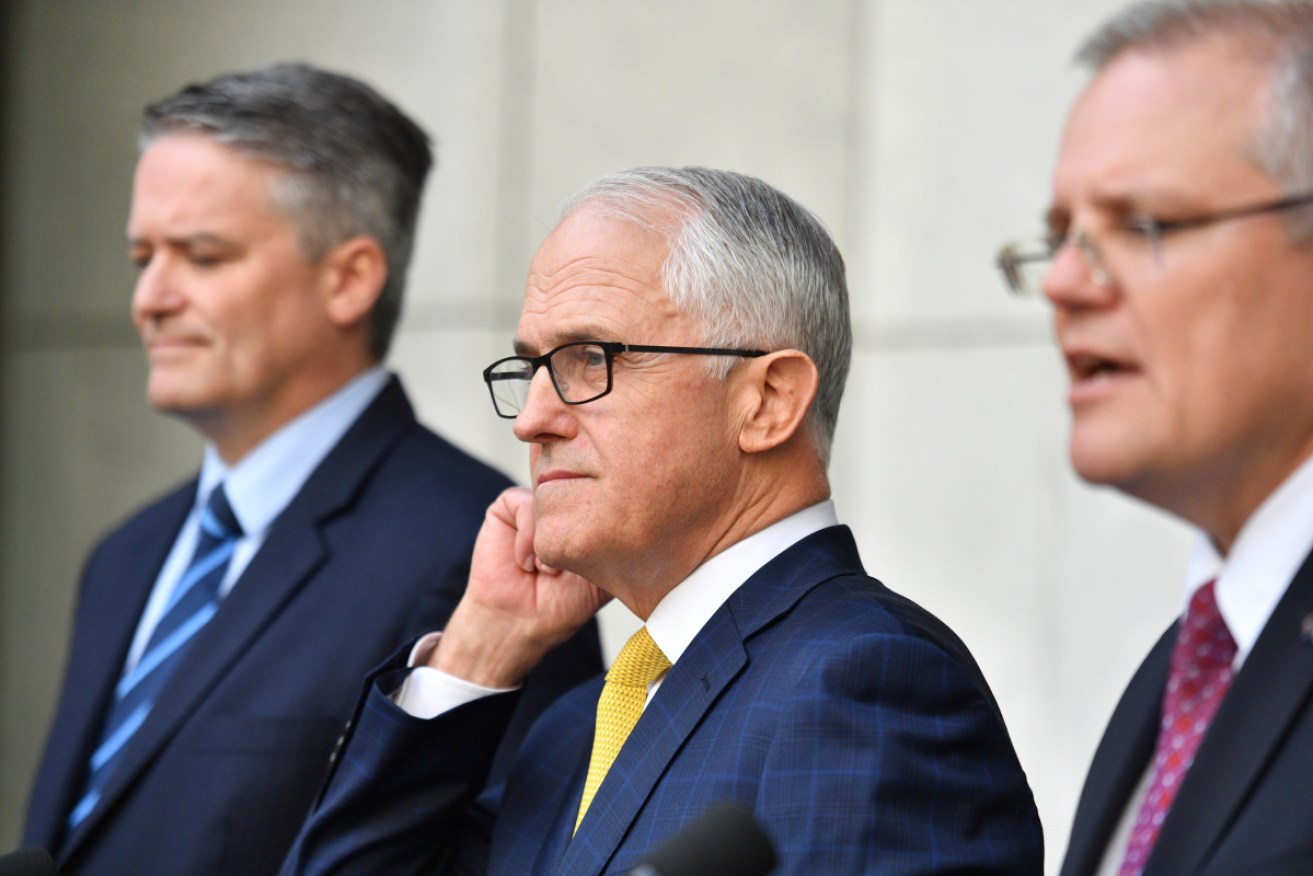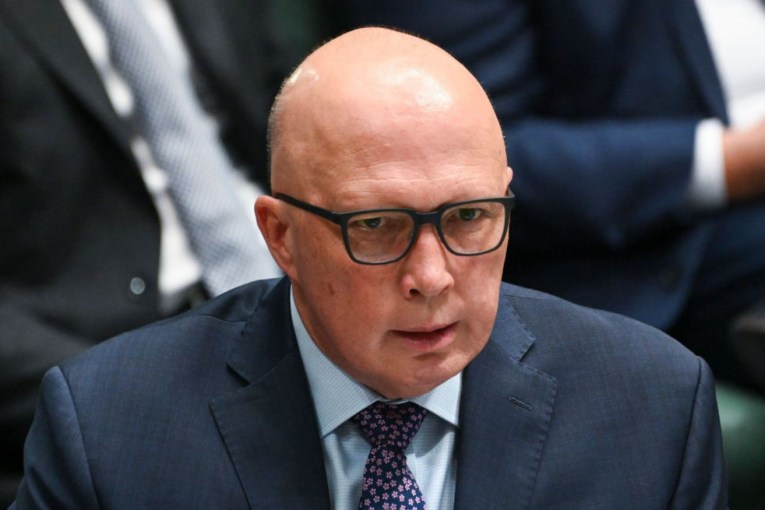‘Carbon tax at the frontier’: Turnbull says EU will punish Australia for failing on climate change


Former prime minister Malcolm Turnbull said "a carbon tax at the frontier" was a real possibility. Photo: AAP
Australian exporters could soon be slugged with a carbon border tax when selling goods into the European Union, according to former prime minister Malcolm Turnbull.
In a panel discussion with UN Special Envoy on Climate Action and Finance Mark Carney, Mr Turnbull said he “could certainly imagine” the EU introducing a carbon border tax to punish climate change laggards.
“It could be quite attractive. It might even be used to impose a bit of, you know, mild protectionism,” he told the Smart Energy Council’s Global Smart Energy Summit on Wednesday morning.
“We absolutely have to face the prospect of, in effect, the carbon tax at the frontier, and I think the Europeans are absolutely up for it. I think [French] President [Emmanuel] Macron has made that very plain.”
In her first State of the Union Address, delivered on September 16, European Commission President Ursula von der Leyen raised the EU’s 2030 emissions reduction target from 40 per cent lower than 1990 levels to 55 per cent lower than 1990 levels.
Describing the target as “ambitious, achievable, and beneficial”, Dr von der Leyen said the trading bloc was also working on a carbon tax on imports, to “motivate foreign producers and EU importers to reduce their carbon emissions”.
Tweet from @SmartEnergyCncl
A day before she addressed the EU, the Morrison government said it would build a gas-fired power plant in the Hunter Valley, NSW, if the private sector refused to do so.
Minister for Energy and Emissions Reduction Angus Taylor said a replacement for AGL’s soon-to-be-retired Liddell power station was needed “to ensure a reliable and affordable energy system”.
But, echoing similar concerns raised by investors and opposition MPs, Mr Turnbull said the plan was “bonkers”.
“There are people who are trying to persuade the government to literally spend billions and billions of dollars to pay for infrastructure to, in effect, subsidise gas,” he said.
“And that is what is bonkers, because it is a transitional fuel, and we run the real risk [of] funding what will become, inevitably, stranded assets.”
The International Energy Agency defines stranded assets as “those investments which have already been made but which, at some time prior to the end of their economic life, are no longer able to earn an economic return”.
According to the Financial Times, US$900 billion ($1.3 trillion) worth of oil and gas would be left in the ground if “governments more aggressively attempted to restrict the rise in temperatures to 1.5C above pre-industrial levels for the rest of this century”.
Tweet from @SmartEnergyCncl
Mr Turnbull said gas has an important role to play as a peaking fuel – energy sources that boost supply during periods of high demand – as “gas plants can be turned on and off relatively quickly”.
“It’s not as fast as a battery or as fast as hydro, but nonetheless it’s got an important role,” he said.
“It’s got a very important role in industry; there are fertilisers, there are a whole range of industries that need gas as feedstock.
But the fundamental issue is: There is not this bonanza of cheap gas in Australia. And absent that, the talk about some gas-led industrial revolution is just based on a false premise.”
Mr Turnbull said the only obstacle to Australia’s transition to clean energy was the uncertainty surrounding the nation’s energy policy.
His comments come as the NSW Independent Planning Commission approved Santos’s controversial $3.6 billion Narrabri coal seam gas project, despite growing concerns about the potential effects of the project on the groundwater supply for nearby farmers.
The project will drill 850 coal seam gas wells in the Pilliga region of northern New South Wales.








